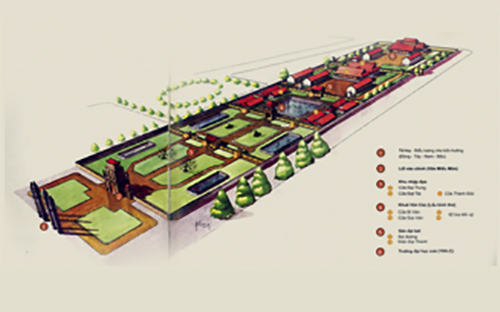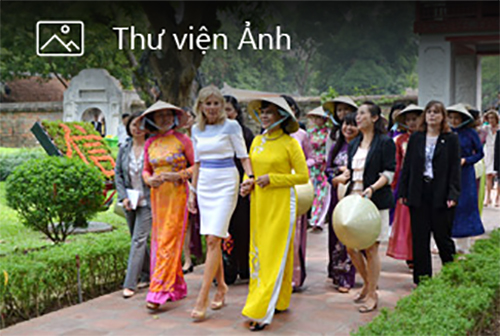Not merely handwritten Characters but also Culture
For many years, Vietnamese have preserved a traditional New Year custom of collecting calligraphic words written in ancient Vietnamese-Chinese script during Lunar New Year. The written words represent people’s wishes for: prosperity, status, longevity, and good health in a new year.
To welcome the new year, people decorate their houses and hang red sheets of paper (called Do paper made from the bark of Do tree)or single sheets of paper on the wall. These decorations are written with Chinese or Vietnamese sentences, or single words, expressing their wishes for the new year. Usually, any member of the family, who is well-educated, can write wishes on behalf of the family. Many families ask someone who is good in literature and has fine handwriting to write words then hang these words on their front door or the pillars in their houses. On occasion, people bring a present to a brilliant scholar and get words directly from the scholar. This traditional custom illustrates the fondness for learning and respect for learned scholars among Vietnamese people.
Although Chinese is no longer a main written language as it was in the past, its cultural significance is still a part of traditional Vietnamese culture. In the past, ‘Ong do’- old or middle-aged men, who were good at literature and had fine handwriting, would sit on the sidewalk next to Van Mieu writing words for a living. However, it was difficult for people to recognize which men were talented Ong do because their abilities were not tested. As a result; to revive the long-established tradition, the city decided to organize activities in Van Mieu-Quoc Tu Giam during the Lunar New Year holiday. Nowadays, before the Calligraphy Festival, Ong do are tested on their abilities and handwriting before they are admitted as official Ong do of the Festival.

Old man doing calligraphy
Every year, the Calligraphy Festival is organized in accordance with a specific theme that honours Vietnamese traditional customs: Study Encouragement, Returning Someone’s Favour, Paying Respect for Teachers. In 2018, the festival was organized following the theme ‘Hien tai’(men of talent and righteousness). The theme reminds people of the statement of Mr. Than Nhan Trung in the text engraved on the stele of 1442. He said: “Virtuous and talented men are the primordial vitality of a state. If the vitality is strong, the state will be powerful and prosperous. On the contrary, it will weaken and have low standing. Therefore, clear-sighted monarchs always attach importance to educating talent and selecting Confucian scholars for the Mandarinate, and regard the fostering of the state’s primordial vitality as an urgent task”. Talented and virtuous men who are well-treated become important elements in the development of a nation. His statement still rings true today, as many talents are increasingly appreciated.

Old calligrapher and his work of art
In the past, talented and virtuous men were seen as men who had great learning and actively developed their nation. Nowadays, in contrast, such men are to develop the world dealing with global issues like: poverty, sickness, illiteracy, inequality. The Spring Calligraphy Festival 2018 expresses the hope of Vietnamese people for prosperity, educational development and happy life.
Author: Ngữ Thiên
Translator: Chuong Van














 Guide to finding the way
Guide to finding the way
